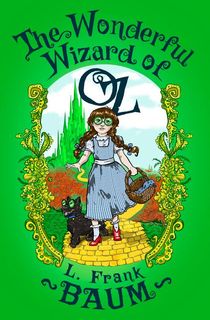It’s a tale as old as time: An underdog has the fate of the world placed on their shoulders. They meet a teacher and cross into a fantastic world where they face trials and tribulations; they fail, are reborn, and finally cross back into their old world, forever changed.
Readers love discovering greatness in unlikely places, and the following eight stories of zeros becoming heroes have shaped our collective view of what it means to make a difference in the world.

King Arthur and His Knights of the Round Table
The stories of King Arthur and Camelot are familiar to most through the adapted movies bearing his name, as well as the children’s book compilation put together and illustrated by Roger Lancelyn Green in 1953.
The stories, however, are ancient—taken from Sir Thomas Malory’s Le Morte d’Arthur, originally published in 1485. The legends of King Arthur, the sword in the stone, and the round table can’t be overlooked when it comes to talking about heroes.
This is the classic story of an unlikely character becoming the most influential figure in the kingdom, and it’s one of the few that continues to influence further literature due to its eternal appeal.

The Lord of the Rings Trilogy
Our hands are tied! This wouldn’t be an acceptable list if we didn’t include J.R.R. Tolkien’s masterpiece The Lord of the Rings. Tolkien was obsessed with the idea of the hero’s journey, which led him to write the epic tale of Frodo Baggins and the destruction of the One Ring.
Tolkien takes his characters through all stages of the hero’s journey, from the humble beginnings of an ordinary life to the trials of overcoming dark forces within and without.

Harry Potter Series
We all love an underdog, and J. K. Rowling utilizes this trait of human nature when she pits the young, inexperienced wizard Harry Potter against the master of dark magic, Voldemort, and his army of Death Eaters.
Harry is the definition of an unlikely hero, a boy orphaned in infancy who lives with his cruel aunt and uncle. Suddenly everything changes for the better and he finds out he’s a wizard, and a famous one at that. Although it’s fairly obvious Harry is going to eventually save the day, it is the prospect of the adventure which keeps us glued to the page.

The Wonderful Wizard of Oz
One of American literature’s most beloved classics, The Wonderful Wizard of Oz is the story of Dorothy, a girl from Kansas, who finds herself in the magical world of Oz. The book chronicles her journey to find her home, during which she befriends a tin man, a scarecrow, and a lion.
The way in which Baum’s characters tackle obstacles seems surprisingly violent for a children’s book at times, but just because the PTA isn’t happy about it doesn’t mean we aren’t. Dorothy is as heroic as they come, and a female protagonist on a hero’s journey is still exciting to see in 2016—just imagine how shocking that was in 1900.

Fahrenheit 451
Guy Montag is the last person readers expect to rebel against a society in which owning books is illegal, especially since, as a “fireman,” book burning is his job. He’s perfectly content with his work, wife, and home—that is, until he meets his neighbor Clarisse, who has a very unusual way of looking at things. She opens him up to the idea that all the senseless violence and mind-numbing entertainment in their lives is meaningless.
Ray Bradbury takes the reader on a different type of journey, utilizing Guy’s inner conflict rather than physical obstacles to make his point. Ironically, the novel itself has been banned several times in the U.S. for depictions of Bible burning and obscenities.

1984
At the beginning of 1984, the “big hero” is Winston Smith, a member of the Outer Party who is going to destroy Big Brother and the establishment from the inside. He goes on a journey, meets mentors, and overcomes many trials, but in the last line of the novel, the reader discovers Winston failed.
This twist on the hero’s journey is indicative of the wave of realism in the 20th century, when writers began commentating on how one person can’t save the world. Instead, we should all work together to create real change.

Ender’s Game
Orson Scott Card’s unlikely hero is Ender Wiggin, a child who the military relocates to a space station and trains to combat aliens (a.k.a. Buggers). The smallest and smartest in his class, Ender endures bullying from his peers, as well as administrative-imposed isolation, so that he can be molded into the ultimate strategist—and the only hope for saving the human race.
By breaking down Ender’s emotional stability, Card explores the theme of blurring the lines of good and evil in order for the hero—even a reluctant one—to succeed in his or her journey.
RELATED: 13 Classic Science Fiction Books Everyone Should Read
.jpg?w=640)
A Wrinkle in Time
A Wrinkle in Time returns to the hero’s journey that is all about good versus evil, pitting the story’s child protagonists against tremendous danger. The book is simple in design, but taps into pretty complex and interesting themes infused with elements of quantum theory.
A Wrinkle in Time focuses on Meg, her friends, and her brother as they strike out to find her father who went missing while researching the mysterious tesseract. The novel struck a nerve within the science fiction community when published because of its use of a female protagonist, which was pretty unusual in the 80s (and can still ruffle feathers, even today). Although many aspects of sci-fi and fantasy have changed, the use of the classic hero’s journey still resonates with our sense of struggle to achieve a greater good.
Featured still from "New Line Cinema."







.jpg?w=640)